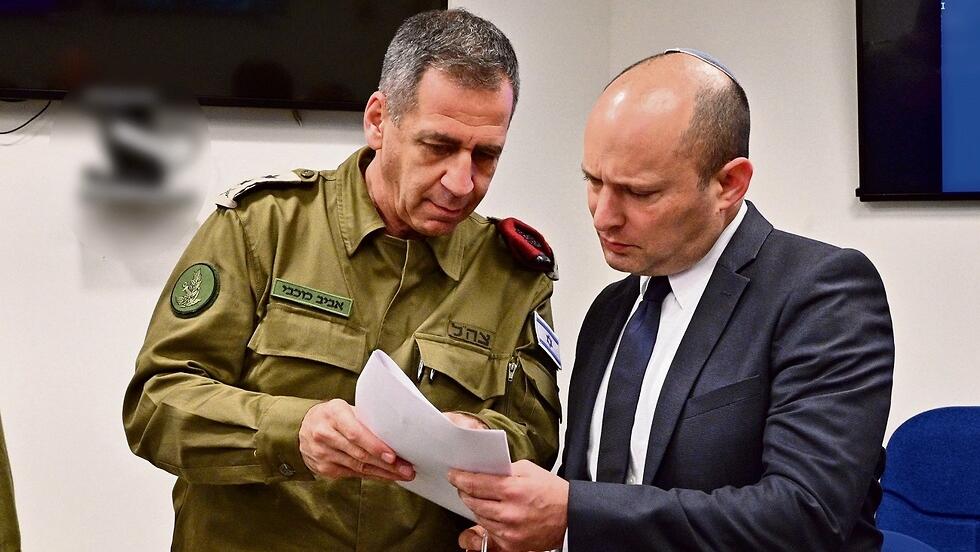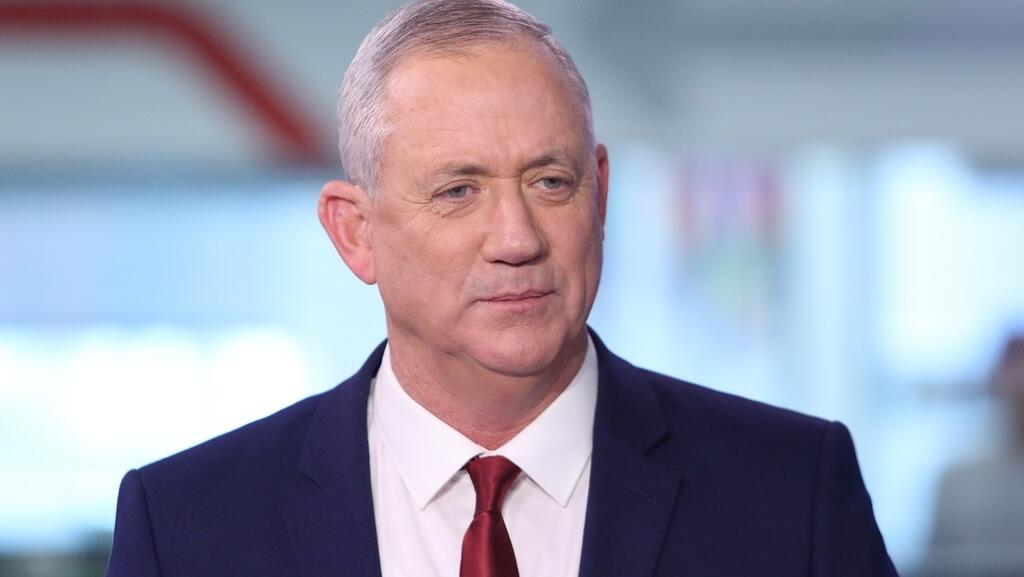In the past few weeks, Israel has been making moves to prepare for a possible military strike on Iranian nuclear targets.
IDF Chief of Staff Lt.-Gen. Aviv Kochavi commanded the army to get ready, the ministerial committee in charge of military equipment approved purchases of helicopters, missiles for the Iron Dome, classified bombs and precision weapons at a total cost of some five billion shekels, in addition to the already approved IDF budget.
3 View gallery


IDF Chief of Staff Lt.-Gen. Aviv Kochavi and Prime Minister Naftali Bennett
(Photo: the Defense Ministry)
However, the question is why just now? Iran didn't accelerate its nuclear program only recently. The shift in policy actually occurred back in 2019, and Israel knew about it.
The responsibility for this oversight lies not only with the top echelon of the IDF, but also with the government headed by former Prime Minister Benjamin Netanyahu.
With the signing of the nuclear agreement between world powers and Iran in 2015, the former IDF Chief of Staff Gadi Eizenkot thought the deal was not as bad as Netanyahu made it out to be, so, IDF resources were directed at battling Hamas, Hezbollah, and "upgrading" Israel's ground forces.
All this was done as part of a multi-year plan named "Gideon", approved by various defense officials and Netanyahu himself.
In 2018, former United States President Donald Trump - with the encouragement from Netanyahu - withdrew from the nuclear agreement. In hindsight, it turned out to be the wrong move, but let us talk about what Israel has done since then.
In 2019, the Iranians shifted their policy from wanting to become a nuclear threshold nation to wishing to acquire an actual atomic bomb. The Israeli intelligence officials, Kochavi (who at the time just became the chief of staff) and Defense Minister Benny Gantz, all knew about Tehran's latest plans and it was discussed in cabinet meetings.
At that point, Israel have began preparing realistic plans for a possible strike on Iran's nuclear facilities because these sort of preparations take years.
Even if the current government has started - as they claim - to prepare a plan, it will take forever until it will becomes operational. The training will only begin in a few months, while the equipment will only arrive in a few years.
So why did we waste so much precious time? This is where the blame game begins.
The military officials said they raised this issue with the political leadership, which at the time was in the midst of a deadlock and failed to okay any concrete plans. Thus, during countless cabinet meetings dedicated to the Iranian issue, the army was never ordered to prepare a plan for a possible strike and the budget for it was never allocated.
And Iranians also know very well that Israel is currently not prepared for a strike despite its belligerent rhetoric.
We should learn from our past mistakes and correct them now, instead of waiting after the next war - like we always do.



